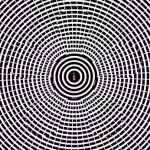Child Buys Nazi Ring from Toy Vending Machine
A vending company in Tulsa, Oklahoma is under fire on Friday, after a four-year-old boy presented a toy ring with Nazi insignia on it to his shocked mother.
Leona Kelley told a local television network, KOKI-TV, that she was livid after her son presented her with the ring, which was purchased with a quarter (25 cent) at a toy vending machine outside a local Family Dollar store. According to Kelley, the ring was “made just like the other rings they’ve got in there.”
The Nazi symbol, an eagle with a swastika in its talons, is known as The Parteiadler - and was Adolf Hitler’s emblem for the genocidal Nazi Party during the Third Reich.
Kelley went inside the store and yelled at the store owners before leaving, confiscating the toy ring. She later traveled to other Family Dollar stores in Tulsa and found that no other machines had the ring in stock.
KOKI later attempted to call the vending company, but calls were left unanswered. The company, which remains unnamed, has apparently been known to be problematic before.
The swastika (also known as the gammadion cross or cross cramponnée) is a symbol that generally takes the form of an equilateral cross, with its four legs bent at 90 degrees (as a Chinese character: 卐 or 卍). It is considered to be a very sacred and auspicious symbol in Hinduism, Buddhism and Jainism.
It appears as a decorative element in various cultures since at least the Neolithic, and is mostly known as a symbol in Indian religions, denoting “auspiciousness”, adopted as such in pre-WWI-Europe and later, and most notably, by the Nazi Party and Nazi Germany. Because of its use in Nazism, in many Western countries the swastika isstigmatized, while it remains commonly used as a religious symbol in Hinduism and Buddhism.
The word swastika derives from the Sanskrit svastika “lucky or auspicious object”. The older term gammadion cross derives mainly from its appearance, which is identical to four Greek gamma letters affixed to each other.






